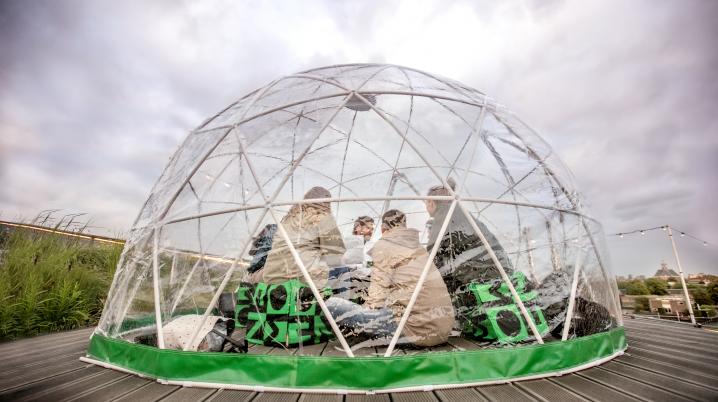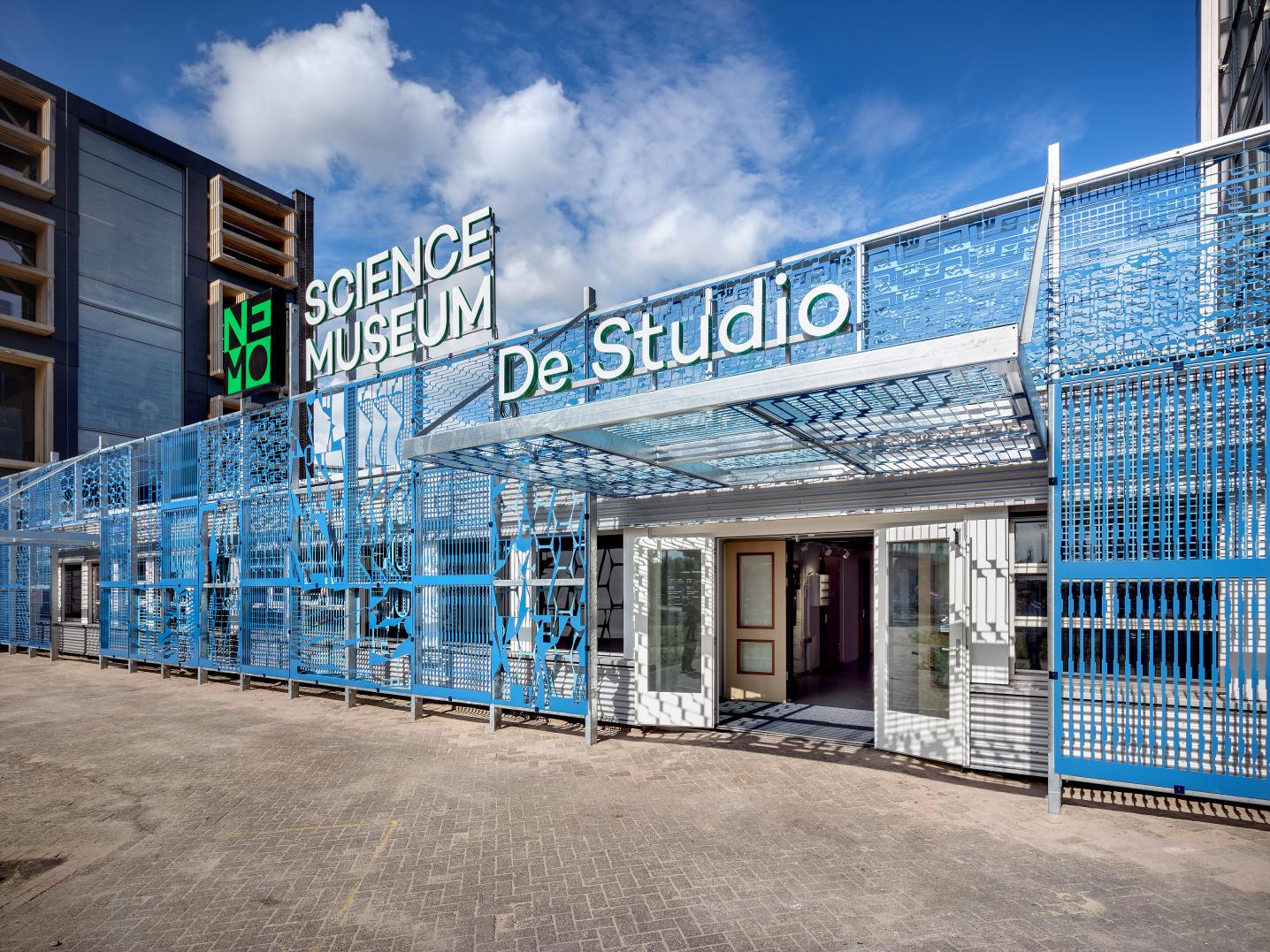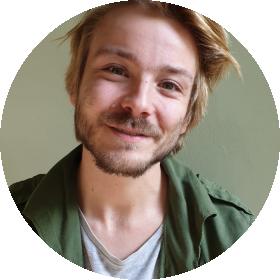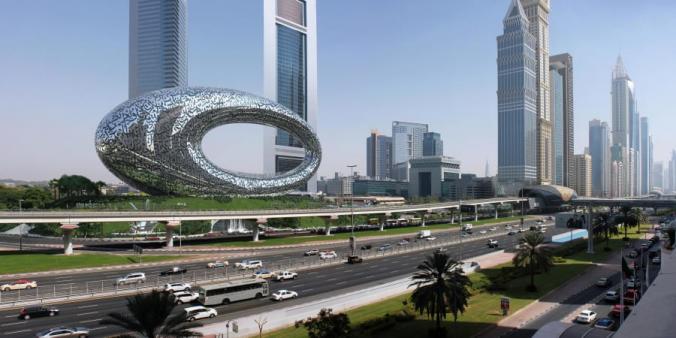Global network of forward-thinking museums gathered in Amsterdam. Futures are at stake.

Global network of forward-thinking museums gathered in Amsterdam. Futures are at stake.
On October 28 and 29, delegations of innovative museums worldwide attended the kick-off meeting of FORMS - Future-oriented Museum Synergies in Amsterdam. It consisted of two days of exchanges with the aspiration to bond and build momentum into the future of the emerging community of innovative, future-oriented museums.
MOTI, short for Museum of Tomorrow International, was born within the Museum of Tomorrow (Museu do Amanhã) in Rio de Janeiro to develop international cultural projects guided by the museum's values: sustainability and conviviality. As a founding member of MOTI, DutchCulture is proud to host and contribute to FORMS, starting with this first-ever meeting. Among the many represented museums and institutions that make up the newly-formed FORMS network are Museum of Tomorrow (Rio de Janeiro), Futurium (Berlin), the UN Live Museum (Copenhagen), Fundesplai (Barcelona) and NEMO Science Museum (Amsterdam).
Shortly before the meeting we spoke to Michiel Buchel, director of NEMO, about his involvement in this network and about the role of museums when it comes to addressing the future of our planet.
Can you tell something about FORMS; what is the purpose of the meeting of this network in Amsterdam and what is unique about this international cooperation?
"I think the reason for this meeting is that a number of museums worldwide want to investigate to what extent they can play a role in the necessary transitions to keep the planet habitable. It entails a shift from a look at the past to a look at the future. As museums tend to enjoy a high level of public confidence, they are well-positioned to involve people in thinking about the future. Also, museums have the opportunity to reach people in a more physical context, in a very different way than a newspaper piece or a documentary can. The experience that we offer at NEMO – immersive and physical – is especially suited for this. That's because sensory experiences in a museum can be very impactful. When using all the senses while learning something new, the transmitted information will endure much longer. Furthermore, future-based programmes necessarily demand different ways of presenting when compared to heritage, for example."

A major aspect of the meeting is about Futures Literacy, a term introduced by UNESCO. Can you explain what Futures Literacy is and what it serves?
""Futures Literacy is a capability that offers knowledge on how we approach challenges by using the future to innovate the present ...)" if I can quote Loes Damhof from the Hanzehogeschool in Groningen. The underlying idea of Futures Literacy is that technology has an increasing impact on our lives. Think about the current discussions on nitrogen and energy transition. The moment that larger parts of society can no longer understand this (think also of bio- or genetic engineering) – there is an increasingly smaller group that is going to make key decisions. So from our end, there is an interest in including citizens in that technological development and in translating complex developments into manageable information.
In concrete terms, you can think about an interactive setup depicting rising sea levels to imagine what the situation would look like in the case of a 30 cm rise. It’s very much about animating and showing the future in a variety of scenarios. The changes that we will see do not only relate to the sea, but also to increasing rainfalls, or the fact that it affects more and more people living in cities. We are uniquely placed to imagine the vast impact that such developments will have on the overall picture. You take people with you in an engaging way about this impact. Museums and science centres are designed to make these complex subjects accessible and that's how they can contribute to public awareness."
What is the significance of becoming future-oriented in this sense, as opposed to looking at the past?
"If you make an exhibition about electricity, you base that on the past and the developments that already happened. Naturally, there is something more iterative and speculative about the future. It is a quest, and we are looking into whether we can develop a module where people can leave their questions or suggestions. Another element is the age of the groups that are targeted focusing on the future. You observe that the younger generation feel a much greater urgency than the older generations. There is a degree of cynicism in the older generations. In my opinion, young people react differently to how the stories are going to be told. They want to think along and have a say. In that situation, we try to be a home for this debate in a confidential environment."
Speaking about this, how do you think NEMO specifically can contribute to the network?
"NEMO has recently opened its laboratory, The Studio. At the new Studio location, we develop and program to introduce people to future themes linked to science and technology. Through this programme, we increasingly discover which themes fit particular audience groups. This helps in creating new exhibitions, lectures, workshops and site-specific programme taking place in the city or at festivals. Reasoning from questions and gathering ideas in particular from urban environments in the CityLab, we practice with visitors on how to make certain dilemmas open to discussion as a method to get dialogues started. In the conversation between the public and museums, information typically flows in a one-way direction, but we want to operate in a reciprocal and participatory way to demonstrate where there might be uncertainty. We have practical experience with that, and we will be able to talk to our international peers about the means to reach new target groups. In this sense, the City Labs are an excellent resource."

What, in general, do you think the role of science museums and natural history museums should be in tackling issues such as climate change?
"As NEMO, we have a very clear ambition to become a museum for the future in the medium-term. A place where most programmes centre around these huge global developments. Through this network, we seek inspiration and experience from colleagues around us. We are a group of museums that aims to come up with a mission statement to state why we think that museums can play an important and useful role in the necessary transitions. I have said it before: a hundred years ago, libraries made reading accessible. In the coming decades, science and natural history museums need to make thinking about the future accessible. We aim to be a neutral place to inspire people and help them imagine what that future will look like, while certain comforts and behaviours will have to change. We need to have an impact on historical consciousness.
I can illustrate this with a very simple example: we had an electric bicycle in 1927. That thing actually existed and it worked. However, there was no support for it and there was no cost price. Additionally, the first electric car was already invented by a Groningen professor. But, the right circumstances, such as universal access to the electricity grid, weren't there yet. In other words, the practicability was not sufficient at that time. What history can teach us is that the knowledge might be there, but that other factors are needed to utilize and employ it to the fullest. This shows the dilemma that engineers often come across when they come up with a more sustainable solution, it’s there but the support for it might still be lacking. And the cause for this goes beyond just the beta-technical topics and may be rooted in sociology and psychology. In the case of innovation: if people do not yet feel that their lives are getting better, it will not find support. Our type of museum always uses the factual side of the story and we stay faithful to the scientific way of thinking to try and inform people about necessary changes and inspire them to support them."
To sum up, what do you hope to take away from these couple of days? Is there anything you will follow with special interest?
"Our main reason to participate is that we have been investigating for some time how we can contribute to a positive awareness of our global transitions. What I generally hope to take from the meeting is to find and share recognition with the museums being on the same quest. I hope it becomes more widely supported and that together we can give greater recognition and amplification. In addition, I will be looking for good practices: exhibitions and activities, the use of technologies and visitor experience, to name a few. This network is undoubtedly full of inspiration we as museum colleagues can gain from. I already know a few things about MOTI Rio de Janeiro, the initiators of the meeting, that are really exciting. I'm going to look for hidden gems that I don't know of yet and hope to be surprised."
DutchCulture is a founding member of the MOTI network. More information on the FORMS meeting can be found here.



